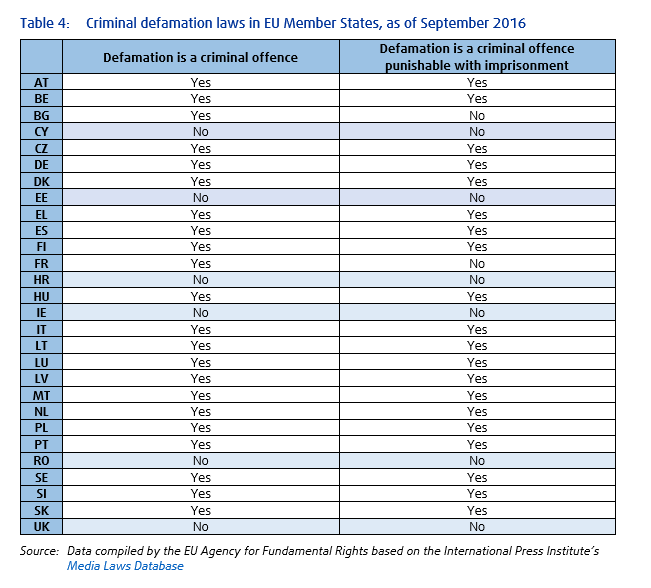Owen Bonnici has forgotten his promise to repeal the criminal defamation laws
A Council of Europe study on freedom of expression and criminal defamation laws, published last September, shows that, although criminal defamation has a stronger chilling effect on journalists than the high financial penalties often imposed in civil cases, the fear of disproportionate sanctions may cause journalists to engage in self-censorship.
“States parties should consider the decriminalization of defamation and, in any case, the application of the criminal law should only be countenanced in the most serious of cases and imprisonment is never an appropriate penalty. It is impermissible for a State party to indict a person for criminal defamation but then not to proceed to trial expeditiously – such a practice has a chilling effect that may unduly restrict the exercise of freedom of expression of the person concerned and others,” it says.
In January 2015, the International Press Institute published a comparative study on defamation laws in the EU, which had been carried out with co-funding from the European Commission. Defamation is a criminal offence in 22 EU member states, with 20 of them allowing for imprisonment on conviction. Malta is one of them. This government has pledged that it will repeal the criminal defamation law, but has found more pressing priorities in, among other things criminalising gay conversion therapy.
No government minister has a pressing personal involvement with gay conversion therapy, but a few of them have been quick to demand that the police prosecute journalists for ‘defaming’ them.

